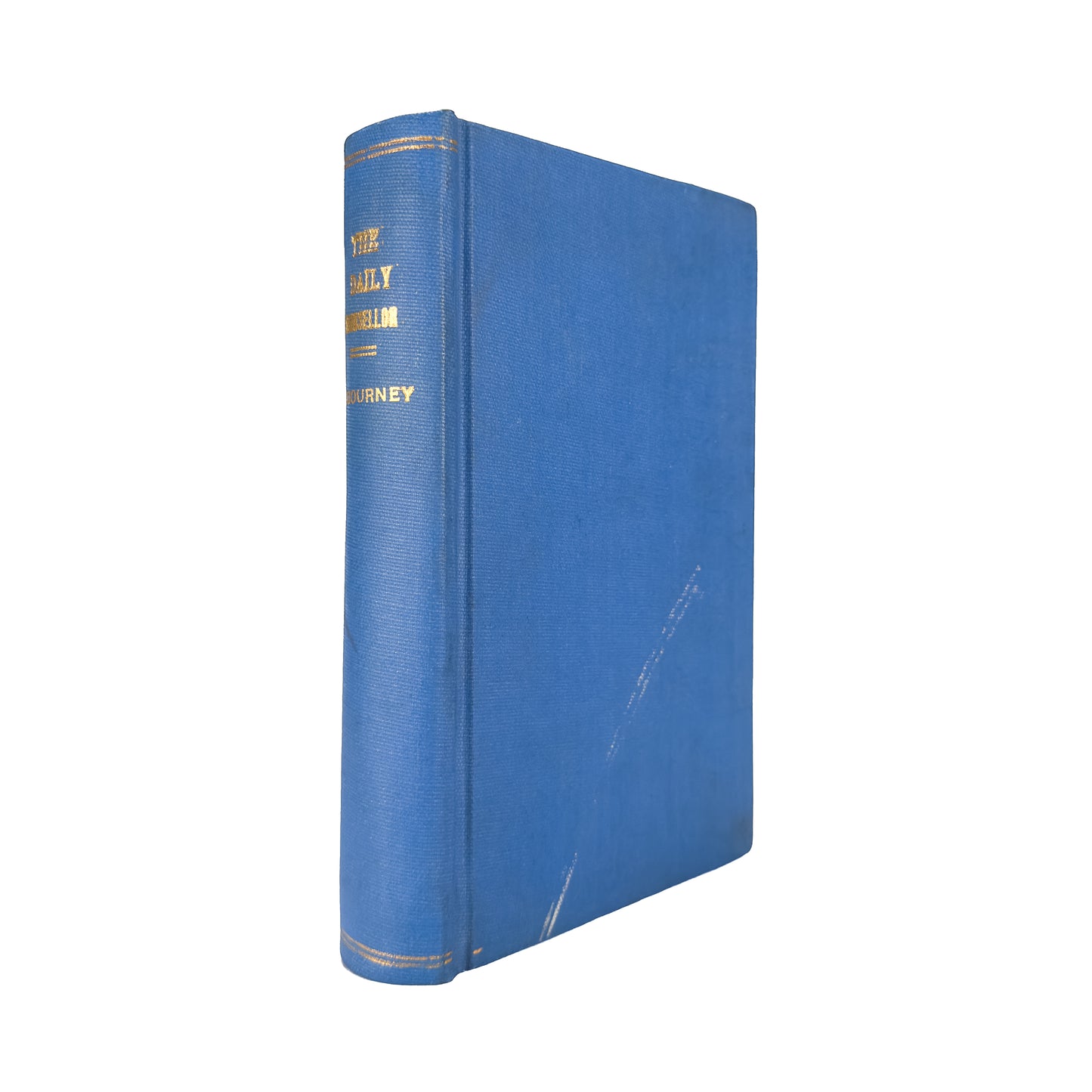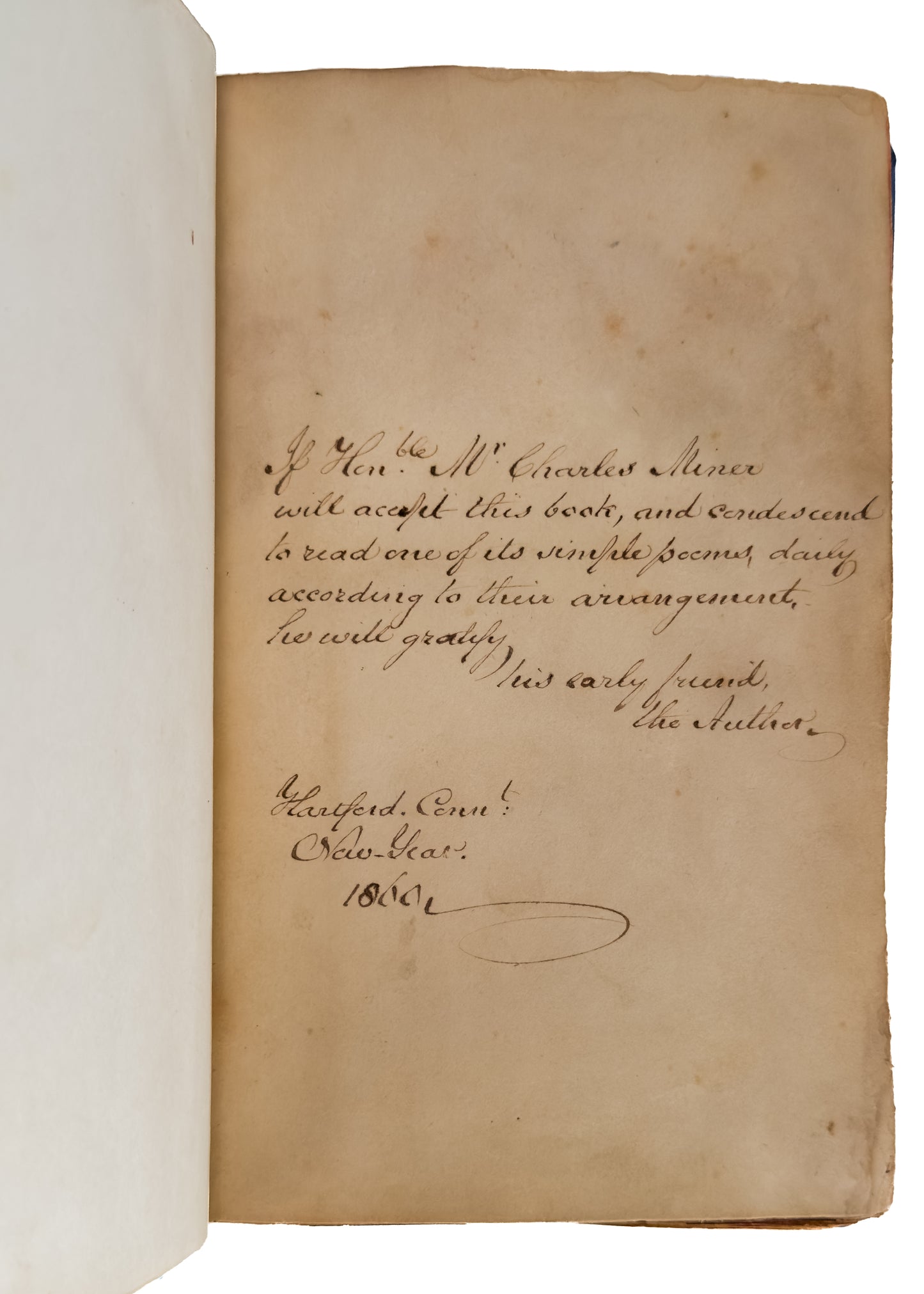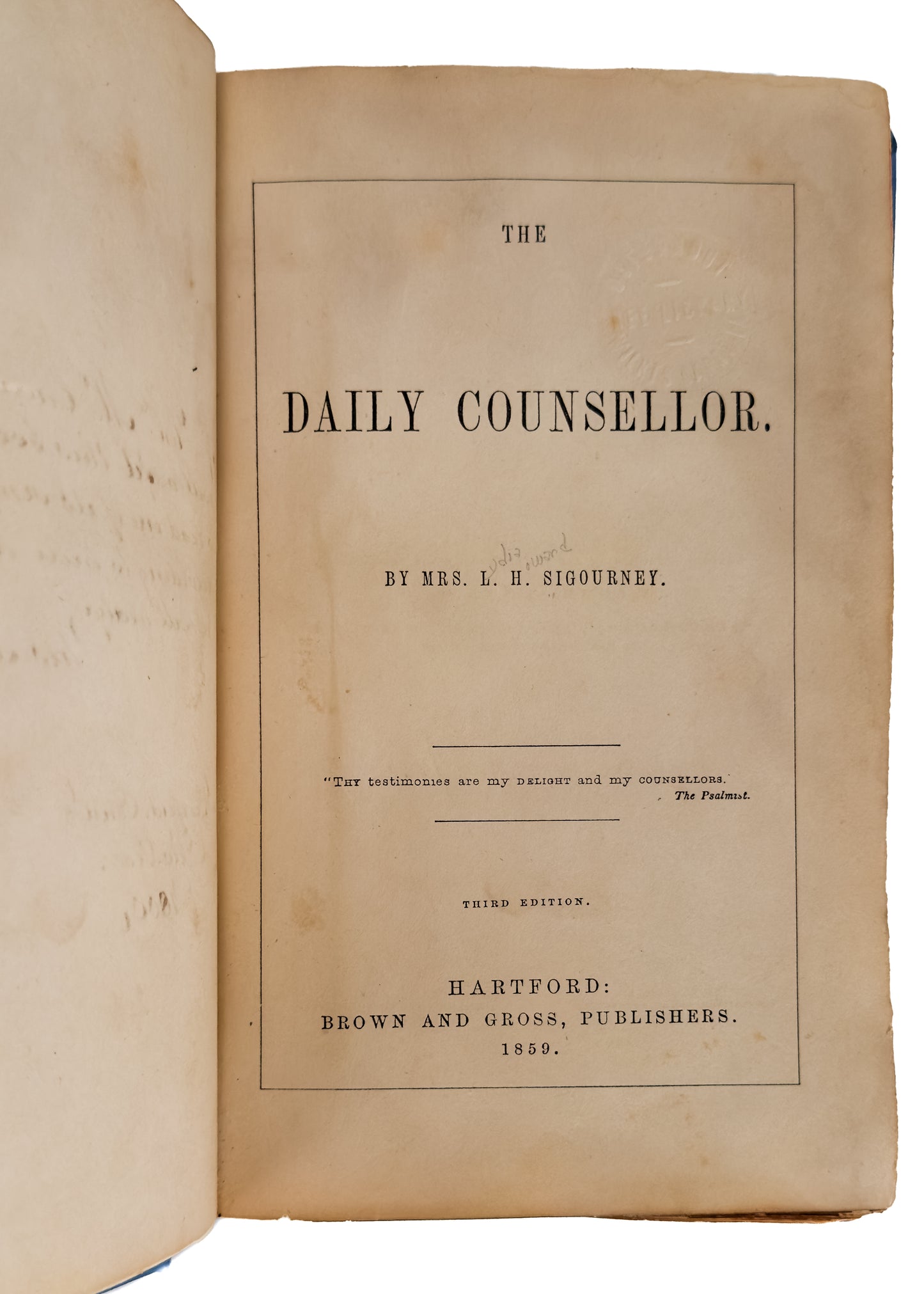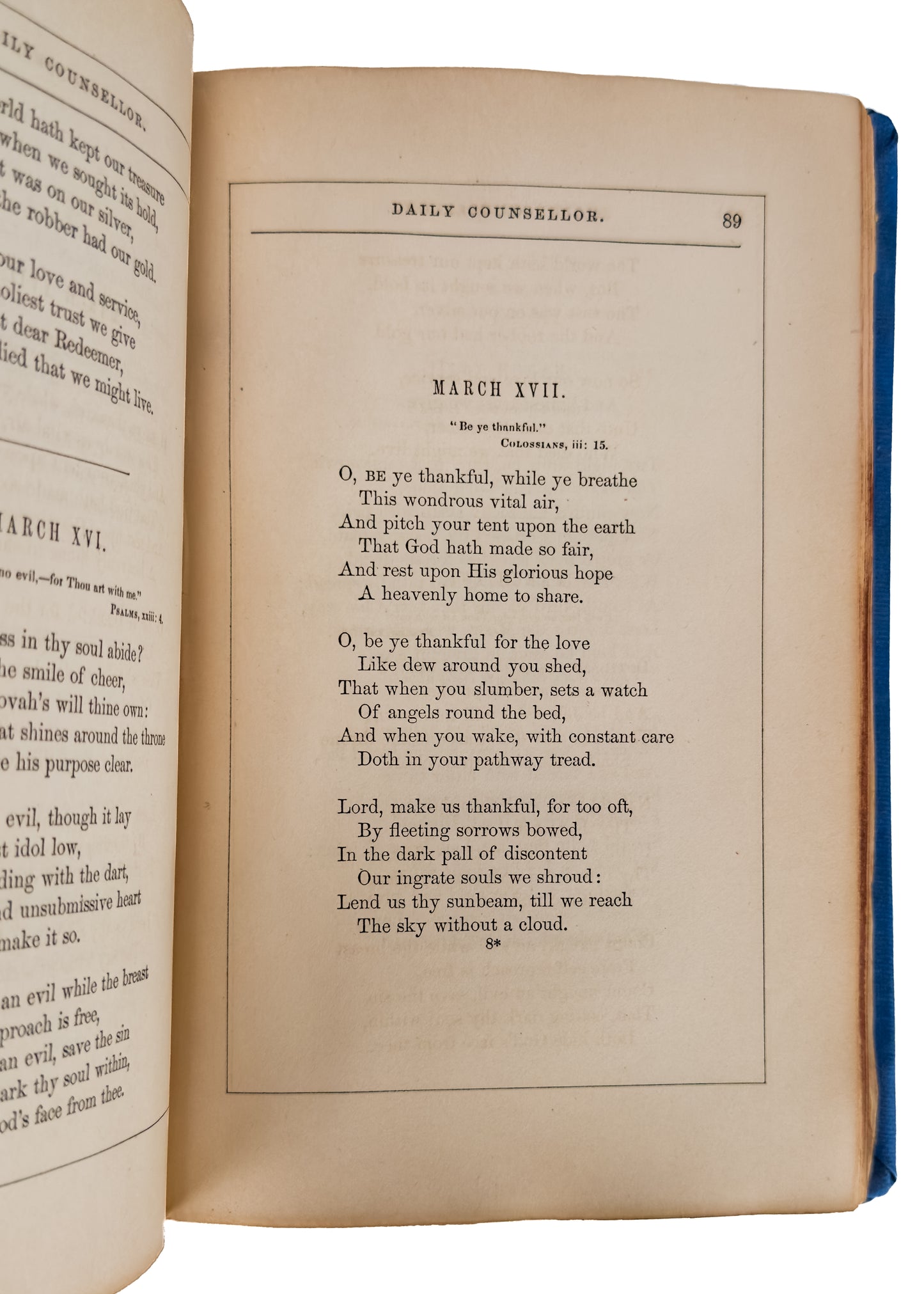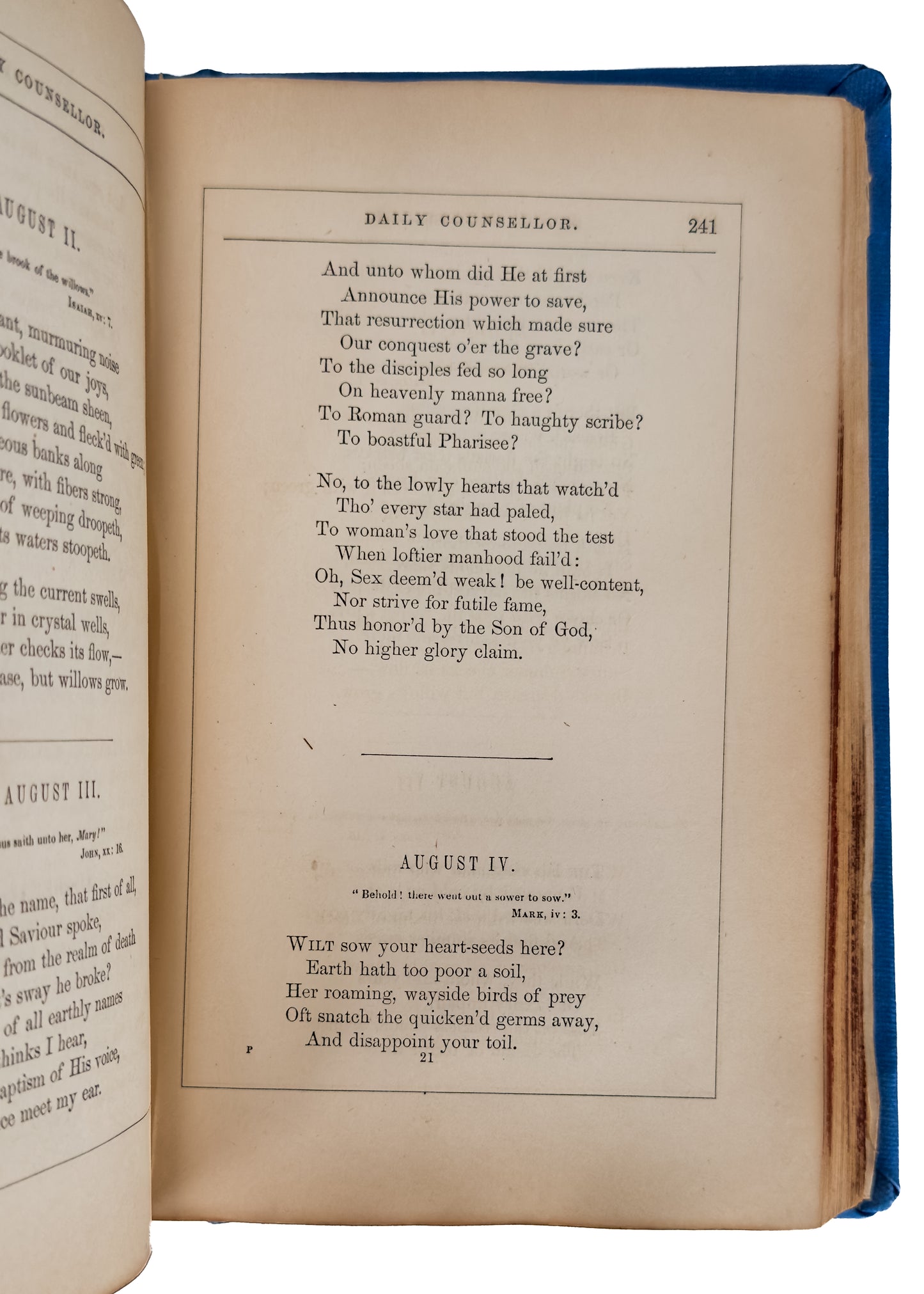Specs Fine Books
1860 ABOLITION & DEVOTION. L. H. Sigourney Gifts Abolitionist Charles Miner with Book of Devotion.
1860 ABOLITION & DEVOTION. L. H. Sigourney Gifts Abolitionist Charles Miner with Book of Devotion.
Couldn't load pickup availability
A fascinating little piece of devotional and abolitionist history.
The present copy of the daily poems, derived from Scripture, composed by Lydia H. Sigourney, was gifted to her childhood Norwich, CT friend and later influential legislative abolitionist, Charles Miner [1780-1865].
Lydia Howard Sigourney's [1791-1865] advocacy for the oppressed has been well-documented. By 1810, Sigourney was running a school for impoverished girls that taught Hebrew and Latin and, controversially, educated young black girls as well. From then until her death, she was always a friend to women, the poor, and the slave and free men through her writings and public work.
By 1860, Lydia and Charles were 69 and 80 years old respectively. Their advanced age makes the inscription all the more touching. Both would die five years later just after the end of the Civil War.
The inscription reads:
"If Hon.ble Mr. Charles Miner will accept this book, and condescend to read one of its simple poems daily according to their arrangement, he will gratify,
his early friend,
the Author.
Hartford. Connt.
New-Year. 1860."
Charles was, as mentioned, also born and raised in Norwich, Connecticut, where he apparently knew the young Lydia. Charles moved to West Chester, PA in 1817 after purchasing the Chester and Delaware Federalist newspapers. His political publishing and involvement ultimately led to his being elected to the United States House of Representatives for Chester, Delaware, and Lancaster counties in 1824.
During Miner's early days in the House, slavery was deeply embedded in the south with almost no abolitionist activity. However, the North was starting to bristle with speakers and authors and preachers advocating anti-slavery views. Miner was among them and became one of the very first National legislators in America to commit themselves toward real progress on the issue.
Miner presented his first anti-slavery proposal to the House on May 13, 1826. He introduced his plan to immediately end the slave trade in the District of Columbia and gradually abolish slavery in the capitol over a period of about ten years. Miner, rightly, thought that immediate, nationwide abolition was politically infeasible. He hoped however that if the District of Columbia could successfully abolish slavery, it would act as a national seed that would spread.
Even by sympathetic colleagues, he was encouraged to drop the issue. Other senators, especially from the South, were less diplomatic. Despite the opposition, Miner continued to work toward a gradual abolition. In 1828, he presented a petition entitled “Memorial of the Inhabitants of the District of Columbia, praying for the gradual abolition of Slavery in the District of Columbia” to the House. The document asserted:
While the laws of the United States denounce the foreign trade as piracy, and punish with death those who are found engaged in its perpetration, there exists in this District, the Seat of National Government, a domestic slave trade, scarcely less disgraceful in its character and even more demoralizing in its influence. For this is not like the former, carried on against a barbarous nation; its victims are reared up among the People of this Country; educated in the precepts of the same religion; and imbued with similar domestic attachments.
Miner primarily argued that the slave trade was cruel and unjust. Slavery, he believed, contradicted both American and Christian values, and therefore depleted the morality of the citizens.
Miner's most influential anti-slavery effort as a legislator occurred in January 1829. In preparation for his proposal, he visited prisons and auctions to discuss the issue of slavery with slaves and jail keepers. He was especially disturbed to learn that free men were kidnapped and sold as slaves or imprisoned for minor debts. All black people in the District of Columbia were assumed to be slaves unless they could provide proof for their freedom, so free men were often mistaken for runaways, arrested, and sold into slavery. In Miner's final speech, he recalled the cruelty he witnessed, exposing the House to the brutal reality of the slave trade.
Miner and his supporters also cited Article I, Section 8, which justified Congress's power over the District of Columbia. At the end of the speech, he offered a series of resolutions that asked the House to investigate the injustices of the slave trade (particularly the arrests of free men, the District's prison systems, and the splitting apart of slave families) and consider the gradual abolition plan. A large majority voted to inquire into Miner's resolutions.
Miner's resolutions won the vote, but the House never acted on his plans. The House eventually abolished slavery in the District of Columbia in 1862, long after Miner's proposal. Still, Miner's efforts laid a foundation for the early abolitionist movement. He brought the question of slavery to the House and began the process of legislative discourse that would ultimately become the law of the land. Miner was not the first legislator to challenge slavery, to be sure, but he was the first to persistently advocate anti-slavery proposals over a prolonged period and with an intentional plan toward that end.
In that light, the present item is a fascinating contextual artifact. It was that Connecticut Congregationalist soil, informed by the New Haven School and the Second Great Awakening, that grew the childhood friends, Sigourney and Miner, into the principled, religious, and influential people they became.
Sigourney, Lydia Howard. The Daily Counsellor. Hartford. Brown and Gross. 1859. 402pp.
A very nice little artifact. It appears to have been in a fire at some point, with some foredge browning and rebound in a very sturdy, if utilitarian buckram binding. Textually generally very good with some light stains and handling toward front of block, one page with some smudging, perhaps ash.
Share
